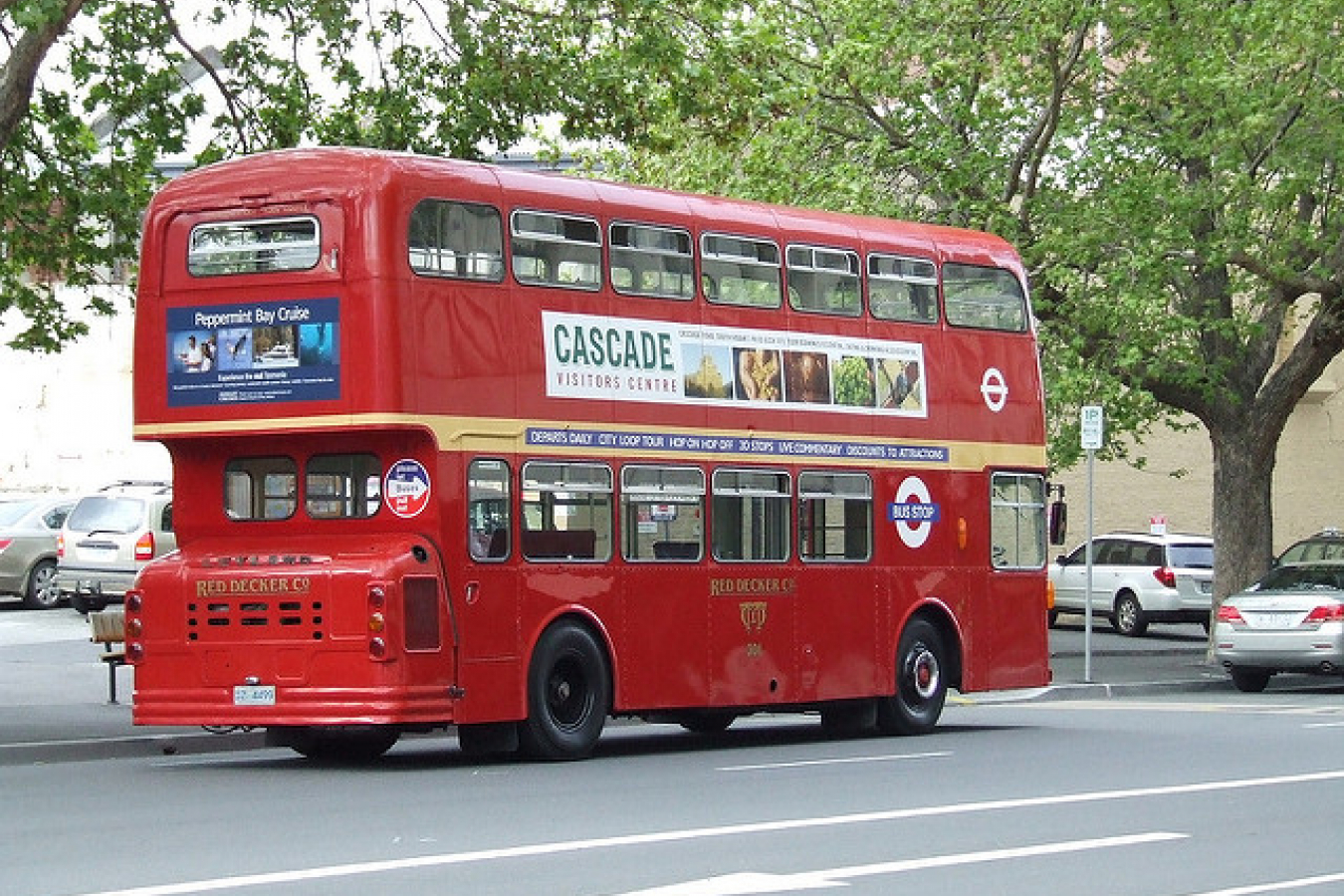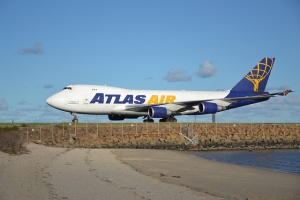Support migrant centric journalism today and donate

From the small town of Toowoomba near Australia's Gold Coast, Dennis Davey is searching the world for people to work in his 200-person engineering company. The Los Angeles Times reports.
He has snared 15 workers from South Africa and 15 more from China. Some of the South Africans have already been poached away by the town's mining companies, so if the latest batch of Chinese works out, Davey says, he will bring over at least 50 more.
"We have no choice," he said in a telephone interview. "We can't find any more people."
The future of Davey Engineering — and other Australian companies — may hinge on the efforts of Australian immigration officials such as Angus Pryor, who set up shop inside a Residence Inn in Beverly Hills this week asking Southern Californians to consider moving Down Under.
With an economy heading into its 15th year of growth and an aging population, Australia has more jobs than qualified applicants. This year, the government expanded its annual quota of skilled migrants by 20,000 over 2005.
"Australia is a victim of its own success," Pryor told a small crowd who joined him for coffee, tea and visa advice one Monday morning.
To illustrate the size of his problem, Pryor pulled out a 14-page list of professions eligible for work visas, including 70 jobs that get priority. Attention: Chefs, hairdressers, mining engineers and registered midwives — please move to the head of the line. People with substantial criminal records or tuberculosis and those over age 45, step back.
After stops in Europe and Asia, the Aussies brought their show to America. Pryor said he had received 1,600 responses — including 200 on Tuesday — to recent advertisements in The Times and on several major employment websites.
"It's rather incredible," he said.
Many of the enthusiastic job seekers attending the Beverly Hills seminar had visited Australia. Some were married to Australians and were ready to make the leap.
"I've traveled throughout the world, and Australia is one of the places that I felt I could live," said John Mendeola, a 43-year-old systems engineer from San Diego, who said he was looking for a job in Perth, his wife's hometown.
It isn't just Australia on the hunt for talent. Officials from Canada, Britain, Iceland, India and China are scouring the globe looking to fill job vacancies and jump-start new sectors of their economies. Some governments are using perks such as subsidized housing or education subsidies to persuade talented foreigners to relocate.
"For the first time, attracting skilled immigrants has become a more organized effort," said Kathleen Newland, director of the Migration Policy Institute in Washington.
Given the enthusiasm, an Australian official said his government might return to hold a full-fledged job fair in the United States this year.
On Monday, Pryor offered tips on surfing the government's recruiting website (www.careersdownunder.com), leavening his fact-heavy presentation with an occasional bit of self-deprecating humor.
"They do speak English in Australia — well, sort of," he told the audience.
For Australia, the shortage of workers is no laughing matter. The island-continent is almost the size of the United States, but its population of 20 million is only slightly bigger than that of the state of New York.
The demographic time bomb is ticking loudly. By 2051, the share of Australia's population over age 65 is projected to double to 26% of the total, while the percentage of those under age 15 is expected to shrink to less than 15% from 20%, according to the Australian government.
Libby Brooke, an expert on aging at Swinburne University of Technology in Hawthorn, Australia, said recruiting overseas was just one part of the government's campaign to keep its economy growing. The government also is promoting programs such as flexible scheduling to help keep older workers on the job and is trying to attract more young people to blue-collar jobs such as mining and construction.
Migration to the more cosmopolitan cities of Sydney and Melbourne has left more isolated parts of Australia desperate for workers. Foreigners willing to work in these remote areas face fewer hurdles to obtain visas.
Pryor didn't resort to theatrics to sell the Aussie lifestyle. The only references to kangaroos or beaches were in a series of small photos on the large posters decorating the conference room.
"Steve Irwin isn't going to jump out of the poster and wrestle a crocodile to the ground," he told a photojournalist. Irwin is host of the Animal Planet cable TV show "Crocodile Hunter."
But the tote bags decorating every chair in the hotel conference room said it all. Emblazoned in bright red letters, the bags read: "Australia needs skills.
Alisa Taggart, a 30-year-old Los Angeles native, didn't need a sales pitch Monday. When she visited Australia in 2002, Taggart said, she initially felt nervous because there were so few blacks. But she fell in love with a place that was "different enough that I knew I was in a different country" but a lot like Southern California. By the end of her two-week visit, she said, she cried at the thought of leaving.
"I'm ready to experience life on my own," said Taggart, who learned about the Australian jobs program while she was surfing the Internet trying to get tickets for an Australian rules football game in Los Angeles.
Taggart, who is trained as a teacher but is working as a leasing agent, said she and a friend planned to start their Australian job search this weekend.
Not all Australians welcome the government's open-door policy. In recent years, some politicians have run on an anti-immigrant platform, playing on fears of rising immigration from Asia. Some labor unions and industry associations also oppose the skilled-migrant program.
Brookings Institution economist Gary Burtless said that reports of global shortages of skilled workers might be exaggerated and that some employers, particularly in high-wage countries, just wanted the freedom to shop abroad for cheaper labor.
"U.S. nursing schools train more than enough nurses to fill all the openings in hospitals, nursing homes and private nursing opportunities," he said. "But a lot of Americans drop out of the profession after a few years in it because the hours are terrible, the pay is low and the fringe benefits are awful."
But Diana Farrell, director of the McKinsey Global Institute, said that in fields such as engineering, the U.S. and other developed countries needed to import talent or send work overseas because universities weren't producing enough graduates to replace retiring baby boomers and fill new positions. Security measures imposed after 9/11 also have made it more difficult for foreign workers to come to this country and have led some foreign-born professionals to leave the United States.
After years hopscotching the globe, James Stobie answered the call to move to Australia four years ago. Stobie, 48, took a pay cut when he moved from Texas to Adelaide to help run a small oil equipment company. He took his wife, Olga, and young son, Sean.
The Long Beach native lives a few blocks from the ocean in a sleepy town with a pier that reminds him of Newport Beach four decades ago.
The benefits to living in Australia, he said, include subsidized healthcare, cheap golf courses and uncrowded highways.
Stobie said he missed "Monday Night Football," Taco Bell and Coors Light. But he said his family liked the slow pace of life in South Australia, where he hopes to retire.
"If you're going to die, you might as well die somewhere you're familiar with … as long as you don't listen to the accents."





















